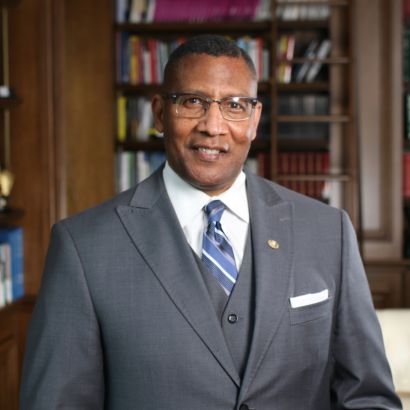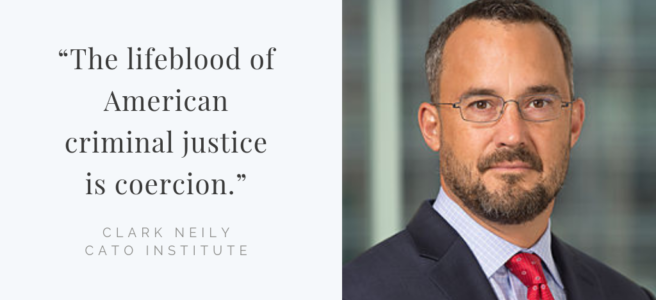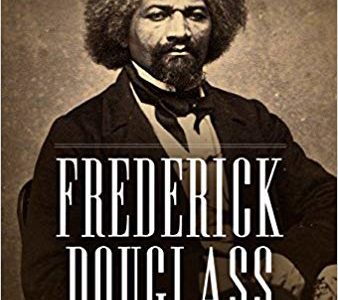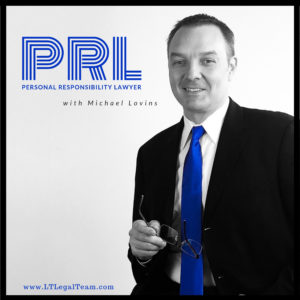The Texas House is considering #HB19, which shifts the costs of tragic wrecks caused by trucking companies onto the victims, and away from insurance companies and trucking companies. This is the latest effort at “tort reform,” which is usually thought of as coming from “conservative” Republicans. In this episode, I explain why there is nothing conservative about this bill, but it is instead a horrible example of #CronyCapitalism. Furthermore, crony capitalism is a gift to socialists who attack capitalism because it lets them compare socialism to crony capitalism instead of free market capitalism. If you compare socialism to crony capitalism, you have a fair fight. But socialism has no chance against true free market capitalism.
Podcast
Policies that Help or Harm the Black Community

Problems can be solved. This episode is all about solving the problems related to the gap between outcomes for black communities as compared to white communities.
Race and racial tensions dominate the headlines. Very little of the news or arguments focus on how to make things better. This episode is all about solutions.
Dr. Richard A Johnson III is the director of the Booker T. Washington Initiative. He has been instrumental in crafting policies to help break the school to prison pipeline, and how to improve public safety, public works, healthcare. and housing.
Follow me on Twitter: @melovins!
A High School for Today’s Kids, Not Yesterday’s Factories

The Waterloo School of Austin is an exciting new high school that debuts in the 2019-2020 school year. In this episode of the Personal Responsibility Lawyer, I had the distinct pleasure to talk to 2 of the co-founders, Craig Doerksen and Dr. Carol Blosser. On the Waterloo home page, it says, “We believe teens are made to influence the world for good.” This, of course, is a huge departure from the more common idea that teens are a problem to be solved and hopefully one day they will become adults who will do more good than harm in the world.
The short version of Waterloo is that it is a project-based high school. But that hardly tells the full story of what they are doing. In this conversation, we go into much greater depth about the Waterloo model. It includes a trimester system, with students taking 2 classes each trimester. Classes are held four days each week, and Friday is a “flex” day for students to do…what needs to be done. This schedule wasn’t thrown together at random. It was created based on a lot of research about how the brain works, and specifically how the teen brain works.
Although Waterloo is trying to fight the distractions of the digital and social media age, they are practical enough to know they have to overcome the irony and be on Twitter, Facebook, and Instagram. I strongly encourage you to follow them for updates (but don’t let these things suck you in and make you waste your day!).
There are several topics and resources raised briefly in this episode that may pique your interest, so here are some links:
The Committee of Ten essentially designed our education system in the 1890s. It should still be fine, right?
Chap Clark wrote Hurt 2.0: Inside the World of Today’s Teenagers. I haven’t read this, but I’m interested.
The documentary Most Likely To Succeed is fantastic. The film’s website is here. You can watch it on Amazon.
The Center for the Advancement of Christian Education produced some research that was important in informing the Waterloo system.
Deep Work: Rules for Focused Success in a Distracted World, by Cal Newport. This is a fantastic book that we mention only briefly. I highly recommend it.
The Pomodoro Technique came up in the conversation. It’s not a huge part of the discussion, but you may find it useful to kick start some productivity.
Finally, here’s how you can listen to this episode of the Personal Responsibility Lawyer. (Oh, yeah, and if you like the program and can give me a 5 star rating on Apple Podcasts or any other podcast app, I’d be mighty grateful!)
Coercive Plea Bargaining with Clark Neily

Plea bargains. They’re just fair, arms length deal between the government and someone who committed a crime, right? Well, sometimes it might be. But if you get caught up in the criminal justice system, there are forces at work that you probably never contemplated.
Only a very small percentage (less than 5%, depending on the jurisdiction) of criminal cases actually go to a jury trial. That number alone means that the plea bargaining system is driving the criminal justice bus.
And whatever drives the bus in our criminal justice system needs to be fine tuned to deliver justice. Hence the “justice” in criminal justice. Well, the system is very efficient, but does it produce justice?
And whatever drives the bus in our criminal justice system needs to be fine tuned to deliver justice. Hence the “justice” in criminal justice. Well, the system is very efficient, but does it produce justice?
In this episode of the Personal Responsibility Lawyer podcast, I talk to Clark Neily, Vice President of Criminal Justice a the Cato Institute. Clark tells us why we should have grave concerns about whether justice is the primary product of the criminal justice system. The 6th Amendment to the US Constitution guarantees a defendant the right to a public trial. But when someone tries to exercise this right, prosecutors often retaliate. In some sense, it’s understandable. They have cases to move and trials take up a lot of time and resources. If even half of those accused took advantage of their 6th Amendment rights, the system would grind to a halt without massive structural changes.
Clark talks about the reality of the problems, why the system can be terribly coercive to innocent people–and even guilty people–and proposes several things we can do to make the system work better and produce more justice. Among the solutions is the return of conscientious acquittal, which is now more often referred to pejoratively as jury nullification.
If you find criminal justice issues important, following Clark on Twitter is a must. You can do that here.
He also wrote a book a few years ago called Terms of Engagement that I highly recommend. (We will all overlook the fact that I called it “Judicial Engagement” during the interview. He was too kind to call me out for it!)
I hope you find this episode as interesting–and a bit frightening–as I did. If you do, please review the podcast on iTunes.
You can also listen on Spotify.
Interview with Tim Sandefur about Frederick Douglass: Self-Made Man

If you don’t know a lot about Frederick Douglass, well, join the club. But then get out of the club. You want to know about this man’s life. Trust me on that one.
My guest in this episode of the Personal Responsibility Lawyer podcast is Tim Sandefur. Tim is the Vice President of Litigation at the Goldwater Institute. We could have spent a full episode talking about the fascinating lawsuits he oversees involving constitutional rights. But this episode is about one of his many books, Frederick Douglass: Self-Made Man.
Prior to hearing Tim speak about this book, I was generally aware of a guy named Frederick Douglass who was pretty important in the abolitionist movement. I’m embarrassed to admit that’s pretty much where my knowledge stopped. But my curiosity was piqued by Tim’s talk, so I read the book. It’s not long, and it’s a really easy read, so I strongly recommend it.
Finally, here are a couple of links about things we discussed briefly in the interview that you may want to research just a bit more. There’s good info about the Seneca Falls Convention here and of course on Wikipedia.
Interview with Martial Artist Richard Johnson
8th Degree Taekwondo black belt and Brazilian Jiu Jitsu brown belt Richard Johnson talks to me about his martial arts journey, and how martial arts teaches basic principles about life and personal responsibility. I’ve known Richard for a long time but I’ve never talked to him in depth about how he got started in martial arts, and how he turned it into his business.
Richard started in martial arts when he was in high school and was tired of being bullied. His idea was that he was going to start winning the fights with the ones who had picked on him. Instead, he hasn’t been in a fight since.
Well, he’s been in a lot of fights, but they were all in competitions. Within a few years of starting Taekwondo, he was a national champion black belt. Now he owns a Taekwondo and Brazilian Jiu Jitsu school in Austin, Texas (www.southaustintkd.com). In spite of all of his Taekwondo accomplishments–being an 8th Degree Grand Master Black Belt ain’t nothin’!–he pushed further and earned a brown belt in Brazilian Jiu Jitsu.
In his school, he teaches 10 Tenets, which are
- Honor
- Courtesy
- Integrity
- Perseverance
- Self-Control
- Courage
- Community
- Strength
- Humility
- Knowledge
It’s not hard to figure out how these tenets apply to real life, but Richard explains how teaching about kicking and punching and blocking translates into real life with these 10 tenets.
There’s a lot of readily applicable information, and you may find yourself wanting to start your own martial arts journey! Enjoy this interview, and let me know what you think!
Interview with Shoshana Weissmann
 I had a great time interviewing Twitter’s Senator, Shoshana Weissmann! If you haven’t already, you can find her on Twitter, @SenatorShoshana. If you’re a Twitter kind of person, I highly recommend you follow her. She is also the digital media guru for the R Street Institute (@RSI or rstreet.org), a free market think tank in Washington, DC.
I had a great time interviewing Twitter’s Senator, Shoshana Weissmann! If you haven’t already, you can find her on Twitter, @SenatorShoshana. If you’re a Twitter kind of person, I highly recommend you follow her. She is also the digital media guru for the R Street Institute (@RSI or rstreet.org), a free market think tank in Washington, DC.
Shoshana and I talk about occupational licensing reform, and how the federal, state, and local governments have gotten into the business of protecting their friends by raising barriers to entry. We even talk about a complete law-nerd term, “regulatory capture.”
Take a listen, and please review us on iTunes!
Introducing the Personal Responsibility Lawyer Podcast!
 Welcome to the Personal Responsibility Lawyer Podcast!
Welcome to the Personal Responsibility Lawyer Podcast!
It seems only fair that if I’m going to do a podcast, I should tell you what it’s about. And I would do that if I had a really clear and easily defined subject matter. I don’t. So here I give you a decent overview of what I have in mind, and I invite you to listen along as we explore all sorts of topics related to Personal Responsibility.
The topic intersects with law, religion and spirituality, politics, and human stories. Many upcoming episodes will contain interviews with smart and/or inspiring people about a lot of different topics. And sometimes I may just rant about something that is on my mind and that I think others will find interesting.
So that’s what the podcast is about. And you probably don’t even need to listen to this Intro Episode now.
You’re welcome.





